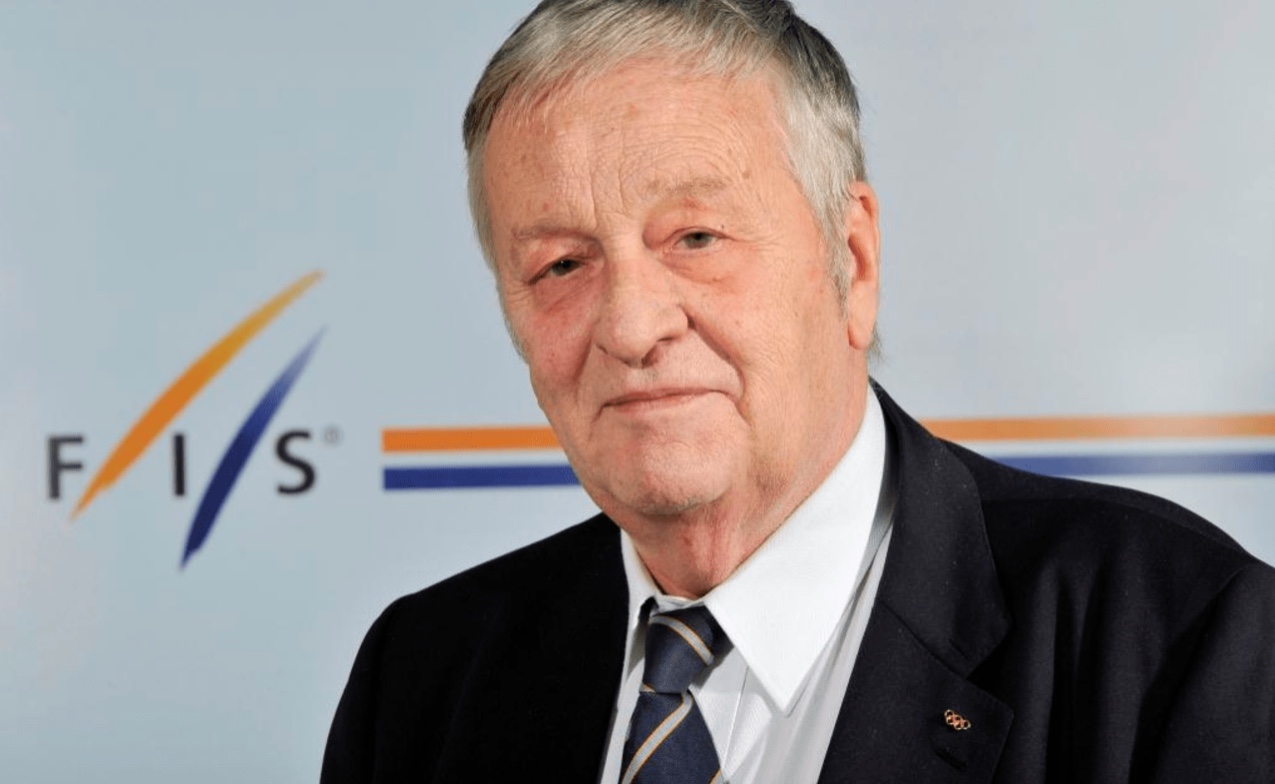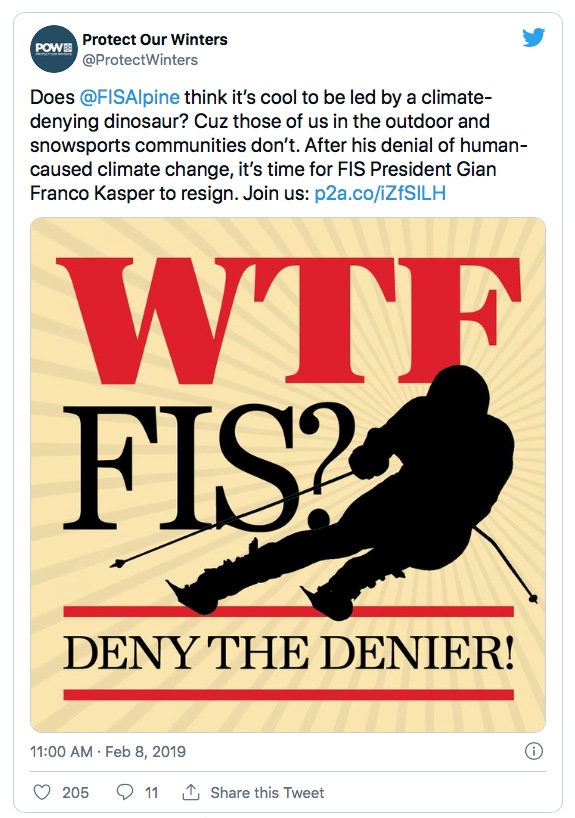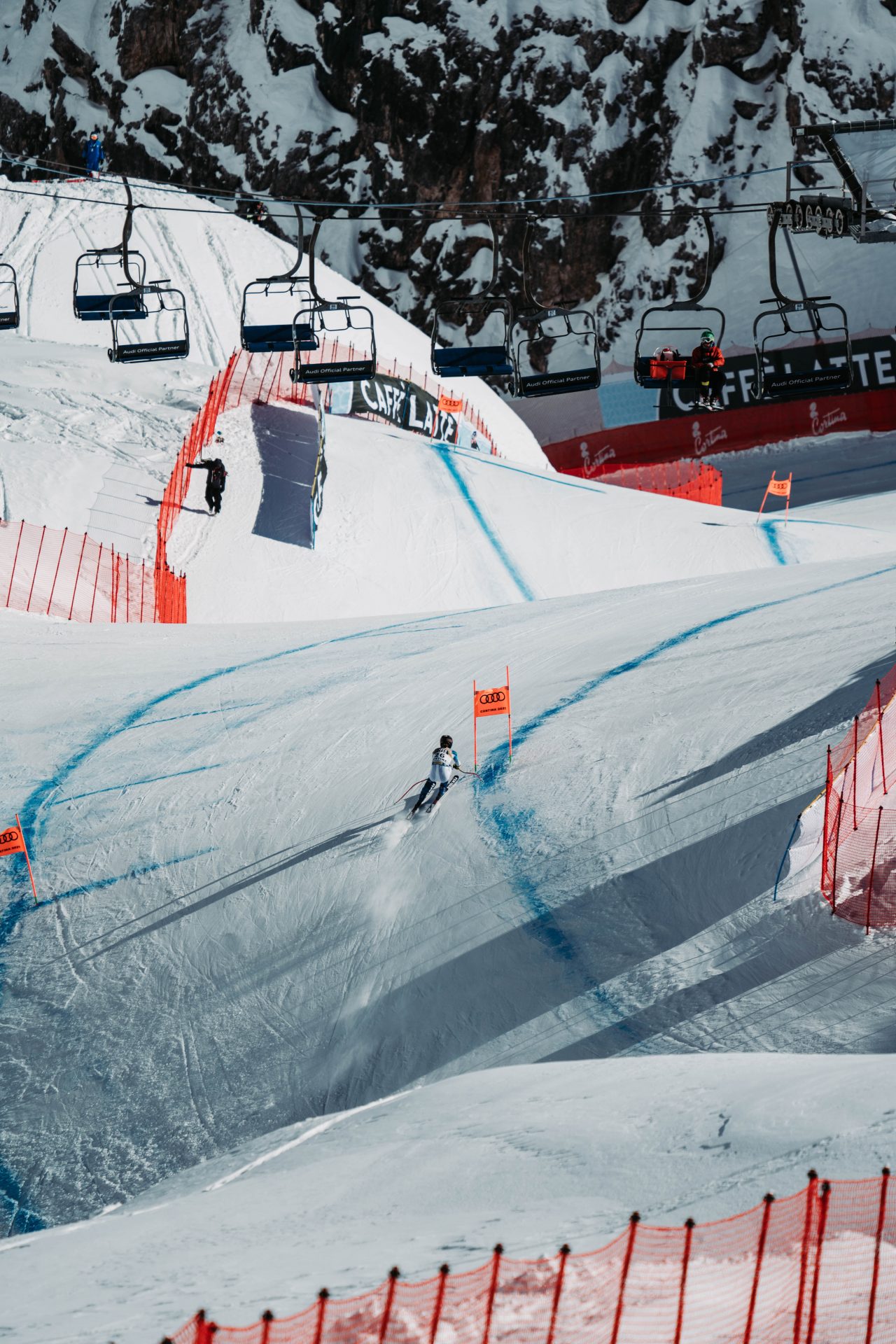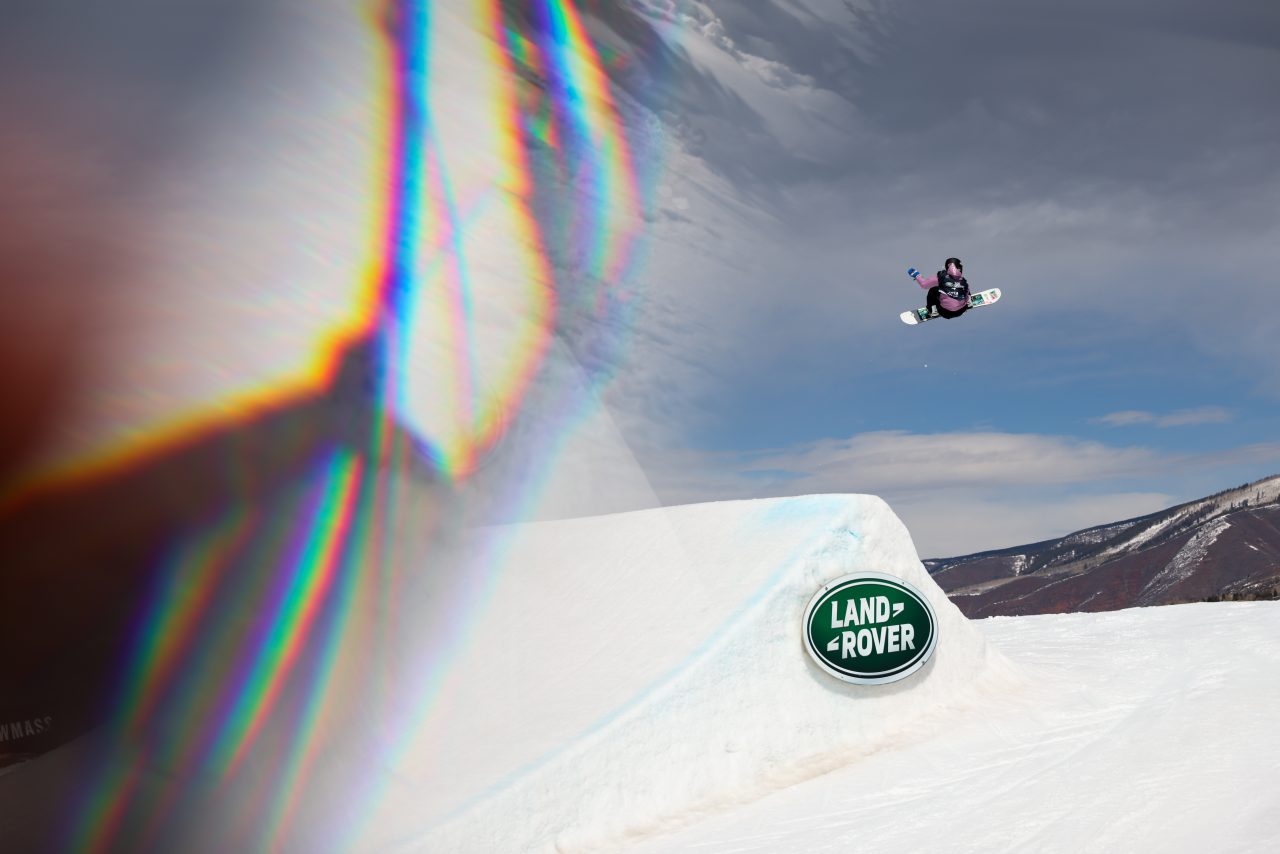Gian Franco Kasper, President of FIS for the past 23 years stepped down earlier this month. Under his leadership, FIS grew to be the preeminent winter Olympic sport federation. Yet despite its growth, Kasper resisted most efforts to reform and modernize FIS, and he left the organization much as he found it.
In 1975, FIS President Marc Holder needed a hand at FIS and brought in the then 29-year-old Kasper—who up to that point had worked as a reporter and representative of Swiss tourism—to serve as the FIS Secretary General. Holder would become his mentor and when he retired from the presidency in 1998 after 47 years at the helm, Kasper began his tenure as president in what was an uncontested transfer of power.

Kasper was already a creature of FIS, he spoke five languages and was suited to a winter life, claiming to be uncomfortable in temperatures above 54 degrees Fahrenheit.
“The guy is super smart and very dedicated to FIS” said Dexter Paine, former U.S. Ski & Snowboard chairman and current FIS Vice President and councilor. “He was dedicated 24 hours a day, 365 days a year to the sport for 40 years. There’s no one I know who has the kind of encyclopedic knowledge around the sport that he did. If you wanted to know who won the cross country world championships in 1993, he could tell you—it was extraordinary.”
Kasper became most known to the public for making politically incorrect comments and chain-smoking. The two habits often went hand in hand as reporters could count on unfettered access to Kasper while he smoked somewhere quiet. He is said to have devised his own elaborate—and illegal—method of smoking undetected in airplane bathrooms.
His sarcastic and unfiltered speaking style did him no favors on the written page. Paine said, “You were never quite sure what was going to come out of his mouth, he was always brutally honest and at times politically incorrect. The press only picked up certain things, but he wasn’t a guy who was different privately than he was publicly…did he say many things that you thought, ‘I can’t believe he said that?’ the answer is absolutely.”
Kasper was criticized a number of times for comments and points of view, and rarely missed an opportunity to say something controversial. He opposed the introduction of women’s ski jumping, declaring in 2005 that the sport “seems not to be appropriate for ladies from a medical point of view.” In 2016, Kasper said in response to the Russian systemic doping in Sochi, “We need to stop pretending sport is clean, it’s a noble principle, but in practice? It’s entertainment. It’s drama.” After Russia was threatened with a total exclusion from the Olympics, Kasper compared the sanction to the holocaust.
In February 2019, the Swiss paper Tages-Anzeiger visited Kasper in his FIS office overlooking Lake Thun in the charming Swiss city of Oberhofen, and described the scene: “Downstairs at the reception the smoke was already in the nose, upstairs in the study the boss smoked one Marlboro red after the other during the conversation, until only his contours could be seen.”

René Hauri, a journalist for Tages-Anzeiger who held the interview with Kasper told FasterSkier in an email, “Gian Franco Kasper is an extremely interesting and entertaining conversation partner. It never gets boring with him.”
In that 2019 interview, Kasper held forth, sardonically doubting climate change and mocking environmental concerns over building ski resorts. When asked if he was concerned about hosting events in countries with poor human rights records, he responded with stark honesty: “The fact is that it is easier for us in dictatorships. From a business point of view, I say: I only want to go into dictatorships, I don’t want to argue with environmentalists.”
The interview caused an uproar when it was picked up and relayed beyond the readership of Tages-Anzeiger, which seemed to catch Kasper off guard, further reinforcing the idea that he had become out of touch with the wider world.
“The statements he made in the interview,” wrote Hauri, “…did not come as a surprise to me, he had already expressed himself in our newspaper in a similar form, especially with regard to climate change.” Indeed, Kasper had long been vocally doubtful of climate change, a position that he best summed up to Ski Racing in 2004 when he said, “Basically, I just don’t want to believe in global warming, that’s clear.”
If Kasper’s comments had only created a modest stir in the past, his interview with Tages-Anzeiger proved to be a bombshell. Hauri explained what set this interview apart: “In 2019 it caused an international uproar because Greta Thunberg was just becoming famous and the World Ski Championships in Åre was coming up. So the timing was one of the deciding factors. Kasper’s problem is that he says a lot of things ironically, flippantly, that he talks like that – and this then seems very hard on paper.”
Climate change nonprofit Protect Our Winters called for him to resign, tweeting that he was a “climate denying dinosaur.” Kasper apologized and said that “…these comments were not meant to be taken literally…”

After the 2019 interview, Kasper faced a new level of scrutiny and pressure to reform FIS. He confided that spring that he didn’t want to be a ‘lame duck’ as he navigated his final term in office. In November 2019 he reached a conclusion and declared he would stand down from the presidency two years into his term at the 2020 Congress. When the pandemic canceled the 2020 Congress, he stayed on for a final year.
—
Early in his tenure Kasper promised change. Speaking to the New York Times in 2001, he told the paper, “I think our federation has to be modernized.” It was a promise that was slow to be realized, and Kasper sought incremental changes.“We don’t have to see ourselves as big doers and so on,” said Kasper, “we are officials who just see that our sport works.”
Still, Kasper did manage to expand the role of FIS sports at the Olympics. Kikkan Randall wrote FasterSkier in an email that Kasper had, “helped the organization retain good awareness and respect in the snow sports world. He was well connected within the greater International Federation world and the IOC.” As a member of the International Olympic Committee, Kasper deftly used his contacts and position to expand FIS by adding 23 medal events, largely by embracing snowboarding and freestyle events, with the two disciplines adding 16 medal events between them. Under his leadership FIS has become the preeminent winter sports federation. The FIS portfolio of sports includes alpine, cross-country, ski jumping, nordic combined, freestyle & freeski, and snowboard.


2021 Land Rover U.S. Grand Prix – Aspen, CO. (Photo: @ussnowboardteam)
While the sports under the FIS umbrella grew rapidly, the organization’s structure remained largely unchanged under Kasper. The Neue Zürcher Zeitung described FIS as a “sedate club,” and suggested that there were inherent political reasons for the status quo, namely, that it concentrated power in the hands of Kasper. “We are a small association, the board consists of people who are not too involved,” Kasper said, adding, “That is also pleasant for me.” Kasper told the paper he could not remember ever failing to get a proposal passed.
Kasper held sway in part through a council that met just twice a year and remained largely, though not wholly, aloof and disinterested. Leadership on many levels ultimately fell to Kasper, so much so that when World Cup race organizers ran into problems, they went directly to Kasper for assistance. “I’m a Vice President of FIS,” said Paine, “that and five dollars buys you a cup of coffee at Starbucks—there was one guy who ran the organization. He led the organization in a very typical sort of old fashion IF [International Federation] way,” said Paine, “It was very hierarchical, but we weren’t the only IF run that way.”
Kasper was cautious about turning ski events into a commercial spectacle. In 2001, he said, “There is a certain balancing act between putting on a show and what I would almost call prostitution.” The idea, and phrase, would become a recurring theme for Kasper. Wary of marketing, FIS mostly offloaded the task to a separate entity in 2009— FIS Marketing AG—a concoction between FIS and two competing marketing firms. In total, it employs 8 people. Kasper shrugged off criticism of its laconic strategy, saying, “We are still a sports association and not a commercial company.”
“Kasper is an old-school functionary who primarily wanted to preserve the old,” Hauri wrote. “He has rejected numerous reforms. The FIS could certainly have grown significantly more, but Kasper always resisted too much marketing.”
Structurally, the organization did little to develop under Kasper, even as the sport grew rapidly. Dexter Paine introduced a package of reform proposals that included more frequent board meetings, term limits, increased transparency and a restructured role for the president. “We introduced the reforms in 2014, 2016, 2018 and 2020,” said Paine, “so at multiple congresses.” Unfortunately, the reforms were never adopted under Kasper.
Instead, Kasper favored a system that allowed initiatives to work their way slowly through committees and Kasper deftly maneuvered to ensure reforms he resisted were put to rest. The Neue Zürcher Zeitung reported that Kasper directed the FIS board to send the reforms that Paine introduced to the good governance working group, headed by Janez Kocijančič, (who passed away in 2o2o) and who was then a Vice President of FIS and a counselor since 1981. Under Kocijančič’s review, Kasper could be assured that the reforms would fester and eventually be forgotten.
In the later years of Kaspers’ incumbency, the ignored reform measures piled up and the backlog of inaction frustrated many ski nations. “IFs tend toward inertia and not toward action,” said Paine. “I would describe my experience on the council as being frustrating. It was an organization that really didn’t want to change but now is our opportunity for change and we’re really very much looking forward to being part of building a more modern FIS under Johan Eliasch’s leadership.”
Though Kasper never faced a contested election, he did have a political foe in Peter Schröcksnadel—the President of the Austrian Ski Federation. Frustrated with FIS, in 2009 Schröcksnadel openly rebelled with the formation of a breakaway entity—the Continental Association—which was joined by Urs Lehmann, the president of Swiss Ski, and runner up in the 2021 FIS election. In the end, the breakaway organization never materialized as a viable alternative to FIS. Through some method, Kasper found a way to tame his rival. “In the beginning he [Schröcksnadel] was against everything, on principle, the votes ended 16:1,” Kasper recounted in 2018. “But I was able to control him.”
As Hauri put it to FasterSkier, “Kasper understood perfectly how to keep calm in the FIS. He could also hold out until a storm or criticism had passed.”
Part of this method of control was through the FIS voting system. Each full member ski association receives between one and three votes depending on its size as a ski nation. 73 associations have voting rights, of which a good number have only rudimentary ski programs. Associations such as Mexico, South Africa, and Hong Kong each receive a vote. In that way, voting power within FIS remains in the hands of small ski associations, many of them from places without much snow. The 18 large ski nations comprise a 43 percent share of the votes, insufficient to maintain a base of power on their own. “He must have watched the small nations well,” wrote Hauri, “which helped him for the support. In the whole 23 years, there has never been an opponent.”
Kasper managed to keep FIS free from corruption scandals that have plagued other sport federations. “I have to say he’s an incredibly moral and ethical guy,” said Paine. “FIS never had many of the issues that biathlon had where ultimately the transition occurred because they threw out the President, so that really speaks to Gian Franco being a really honest, straightforward guy.”
A 2019 report by Play the Game on sports governance found that FIS received an overall score of 74%. FIS scored highest on transparency and societal responsibility, and lowest on democratic processes, and the report placed the organization amongst the best run federations. By comparison, scandal-plagued biathlon ranked low on the list, with an overall score of 39%. (Since that time, the International Biathlon Union has implemented massive reforms including the formation of the independent Biathlon Integrity Unit.)
—
At the most recent FIS Congress, delegates elected Johan Eliasch, the billionaire CEO of ski company HEAD. He won 54% of the vote.
“We were big fans and big supporters of Johan and are very happy that he was elected the next President,” said Paine. Eliasch’s campaign was also supported by others from the U.S., notably Secretary John Kerry, the current Climate Envoy for the Biden administration.
Kikkan Randall wrote FasterSkier that she thought Kasper’s “perspective was a little conservative and ‘old school’ at times, and while we are grateful for his leadership over the years, it was time for FIS to get some fresh new thinking.”
With Eliasch as FIS President, there is now a receptive audience for the reforms that Paine has called for over the past eight years. “We’ve been very outspoken,” said Paine, “that we need a lot more transparency around financials and executive compensation. We are advocates for using the significant cash reserves for increasing prize money for athletes, and to put more money into athlete safety. It’s just very important that we become more athlete centric with a focus on increasing prize money, safety, and youth development.”
Paine continued, “While Gian Franco certainly had his shortcomings and said many things that we did not endorse, it’s important to thank him for working at FIS for 40 plus years; he really gave his heart and soul to the organization.”
Due to a medical event, Kasper was not able to attend his final FIS congress.
“We didn’t get a chance to say thank you at the Congress, and whether you agree with his views or don’t agree with him, I think it’s really important that we all say thanks for what he has done for the sport. Not everything we wanted got done, but during that time the number of ski and snowboard events at the Olympics has increased significantly. Today we represent 52% of the winter Olympic medals, the dominant winter sports federation, and he had a big part in creating that success. Despite our frustration, I hope what’s not lost is our thanks to a guy who gave his life to the sport and FIS.”
In 2019 Kasper was asked how his career will be remembered, and he reminisced in his typically blunt fashion, “I may have managed more than anything else, but one thing is certain: I kept this pig heap together.”
Pasha Kahn
Pasha Kahn writes and coaches in Duluth, Minnesota.



